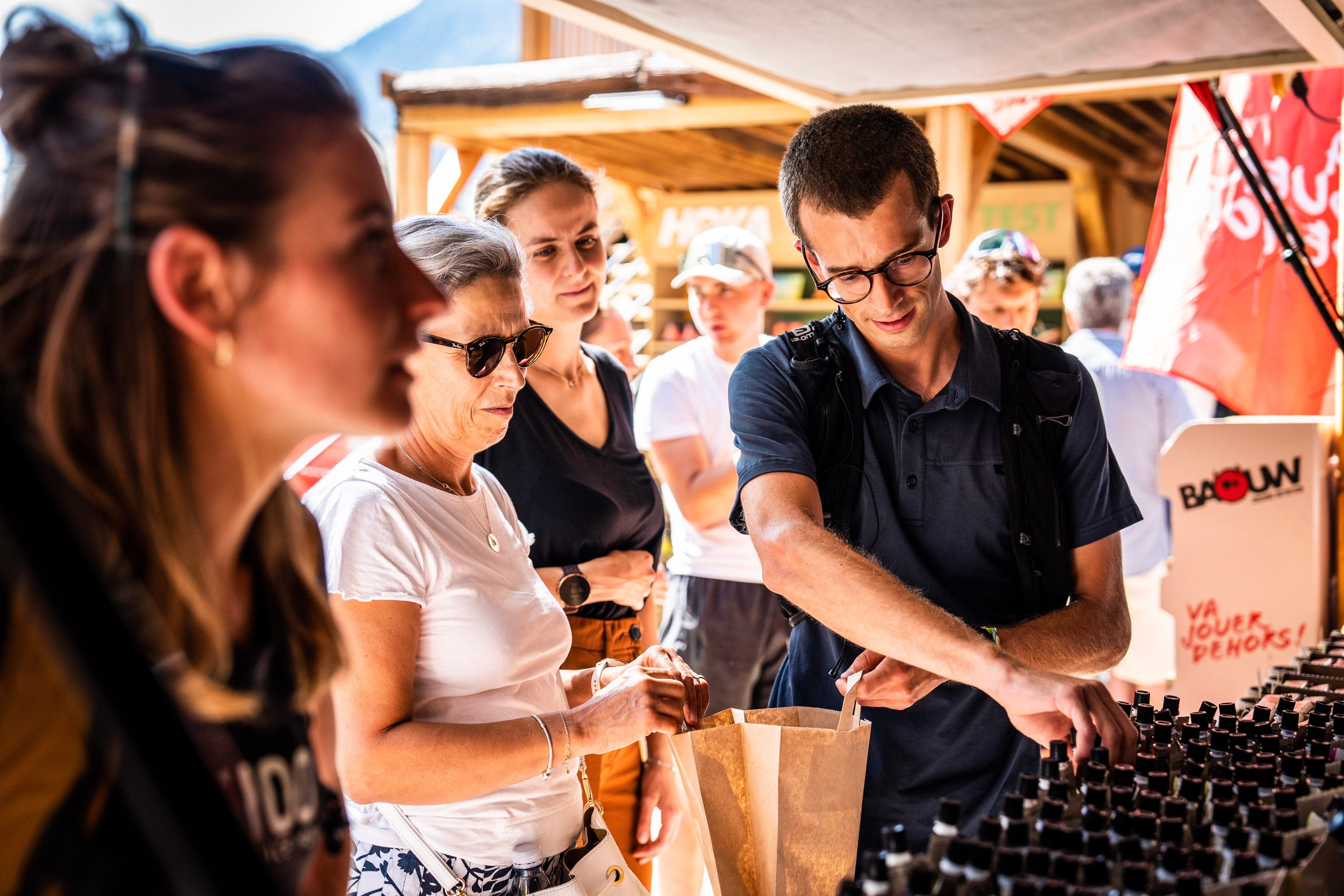The role of magnesium in endurance athletes has been the subject of scientific studies aimed at proving (or disproving!) the benefits of this mineral. As a regular athlete, you know how closely nutrition is linked to your performance. But do you know exactly how magnesium is a real ally for your body?
A little teaser from our article: our famous mineral salt is involved in hundreds of biological processes, from energy production to muscle contraction and recovery. As you continue reading, you will also discover that a magnesium deficiency can quickly hinder your progress and impact the effectiveness of your workouts. But above all, we reveal everything you need to know to optimize your magnesium intake, effectively integrate it into your diet, and boost your athletic performance!
Magnesium and sports: OK, but what exactly is magnesium?
Before diving into the benefits of magnesium for athletes, let's take a quick scientific detour. Magnesium is an essential mineral (like calcium, sodium, zinc, etc.) found in your body in amounts of around 25 g. Nearly 60% of this amount is distributed in the bones, while the rest is found in the muscles, liver, and other tissues. It actively participates in more than 300 enzymatic reactions, including energy production, protein synthesis, and muscle contraction. In short, the trinity of athletes!
The benefits of combining exercise and magnesium
Do you exercise regularly? Good news: your body runs on magnesium! The reasons why you need it are listed below!
Optimizing energy production
Magnesium is involved in the conversion of carbohydrates and lipids into ATP (to put it simply, this is the energy that your cells can use). In other words, without magnesium, your body struggles to convert nutrients into energy.
nervous system and stress
Un effort intense fait subir à ton corps un stress oxydatif important. Le magnésium contribue au fonctionnement normal du système nerveux, un facteur important dans la gestion du stress et de la détente. Et comme on t’a déjà parlé des bienfaits des sportives antioxydants, You know that oxidative stress is not your best ally when you practice your favorite sport!
nervous system and sleep
Magnesium contributes to normal psychological function, which can be beneficial for quality sleep. Here too, we have already told you about the association between “sleep and athletic performance", which is recommended for staying in top shape! It should also be noted that quality sleep optimizes muscle recovery. Ultimately, getting enough good-quality sleep is almost a medical prescription!

What about magnesium deficiency?
Pour ne rien arranger, sache que les sportifs sont particulièrement exposés à une carence en magnésium. Pourquoi ? Tout simplement parce que la transpiration et l'effort physique augmentent les pertes en minéraux.
In what form should magnesium be consumed in the context of sports?
If you're familiar with Baouw products, you know that we're big fans of natural ingredients and that we develop our gels, bars, and energetique puree made from healthy ingredients. Ultra-processed foods are not for us! We therefore recommend choosing a natural source of magnesium that is easily absorbed. It comes in several forms, which we detail below.
Foods rich in magnesium, recommended for athletes
Ideally, choose organic and, above all, seasonal produce:
- Seafood, shellfish, and fatty fish, not to mention sea lettuce, including in its dried form, which is super easy to sprinkle on your salads and add to your smoothies.
- dried fruits (almonds, cashews, hazelnuts at the top of the list)
- dark chocolate (with more than 70% cocoa)
- legumes (lentils, chickpeas, split peas, red beans)
- bananas and avocados (we've done better locally, of course, but that's the whole point of varying your sources of magnesium)
- whole grains (go for brown rice and quinoa!)
What about magnesium-based dietary supplements recommended for sports?
They can be useful in cases of high energy expenditure, but be careful to choose highly bioavailable forms such as magnesium citrate or bisglycinate. Why not on a very occasional basis, let's say... But nothing can replace the nutritional benefits provided by food, let's be clear about that!
What about mineral-rich beverages?
Some mineral waters naturally contain magnesium and help rehydrate your body while replenishing essential minerals. However, be careful not to drink too much to avoid intestinal problems... You can also turn to electrolytes from time to time, as recommended by our super nutritionist Benoît Nave!
In which Baouw products can you find natural magnesium?
In Baouw, we love taking care of our athletic friends' health! Whether you're resume running gently, halfway to achieving your next athletic goal or already going full throttle "trail" special nutrition, Our chef has created products that are easy to consume during exercise and designed to help you optimize your performance. Zero traces of artificial additives—we insist on it.
Our “full magnesium” energy bars
Some of our energy bars are particularly rich in magnesium thanks to their composition. Our apple-cinnamon plant-based protein bar contains a powerful combination of cashews and pumpkin seeds. Similarly, our chocolate-peanut bar provides you with 21 mg of magnesium: in short, you get the best of both worlds when you eat one! The banana-pecan version provides you with 34 mg of magnesium per bar: we really have gone all out to ensure you get the nutrients you need!
Finally, let's put our Raspberry-Pistachio bar on the podium, which boosts your magnesium intake thanks to the cashews in its composition, but also thanks to the presence of buckwheat. It should be noted that buckwheat meets particularly high standards: glycemia index low in gluten and rich in complete plant proteins (“complete” because they contain all nine essential amino acids necessary for a healthy diet). In its raw form, buckwheat provides approximately 230 mg of magnesium per 100 g. As an athlete, it would be a shame to miss out on this!
Et dans nos purées alors ?
Our energy purees and compotes have been designed to meet your nutritional needs when you're exercising, while also relieving your body, which is already working hard to perform, from the effort of chewing. First up is our banana-kiwi-vanilla energy compote, whose star ingredient is... the banana, the fruit richest in magnesium. Are you more of a savory person? Our sweet potato-carrot-Timut pepper energy purée will meet your expectations! We've already told you about the superpowers of our favorite tuber in our article dedicated to sweet potatoe for athletes, So you remember that it contains a significant amount of magnesium. ;)
And finally, we can't conclude this paragraph on our healthy, magnesium-rich products designed for athletes without mentioning our crunchy praline-hazelnut spread, which provides 131 mg of magnesium per 100 g of product. Of course, that's no reason to spread 100 g of our delicious spread on a slice of whole wheat bread!
No matter which Baouw products you prefer, you can be sure that your body is getting a natural and effective supply of magnesium, ideal for boosting your performance and recovery when you incorporate them into your sports nutrition.
Should magnesium be consumed during exercise? Before or after?
Some times are better than others for eating magnesium-rich foods, especially if you want to get the most out of its benefits for your body. So we've put together a handy reminder for athletes!
Magnesium before exercise
Taking magnesium before a workout helps prevent cramps and optimize energy production. So, don't hesitate to opt for foods such as dried fruit, dark chocolate, or a magnesium-rich energy bar about 1 to 2 hours before training.
After the effort
Après une séance de sport, le processus de sudation fait que ton corps a perdu des électrolytes. Consommer des aliments riches en magnésium, comme une purée à base de banane et amande ou une barre aux noix de cajou, dans les 30 minutes à 1 heure post-effort, est un choix judicieux pour donner un coup de pouce à ton organisme, déjà occupé à travailler sur sa récupération.
Magnesium in the evening: a great way to promote sleep
Opting for magnesium-rich foods at dinner, or simply treating yourself to a handful of almonds during the evening, can be beneficial. Finally, if you are a fan of evening herbal teas, be aware that certain plants can help ensure you get your recommended intake. Although these will certainly be more moderate than solid foods such as legumes, herbal teas are a useful supplement. You can make your own blend based on nettle, horsetail, fennel, lemon balm, or linden. It's always good to have some on hand!
What about days without exercise?
Prevention is the best way to avoid deficiency. A varied and balanced diet based on seasonal produce will normally provide you with optimal nutritional intake. But since a little help is always welcome, don't hesitate to include magnesium-rich foods in your daily diet, especially at breakfast and lunch (from legumes to green vegetables to seafood, there's plenty of variety to choose from). With a healthy daily diet and Baouw on hand during your training days, you'll be giving your body all the magnesium it needs to boost your performance!







